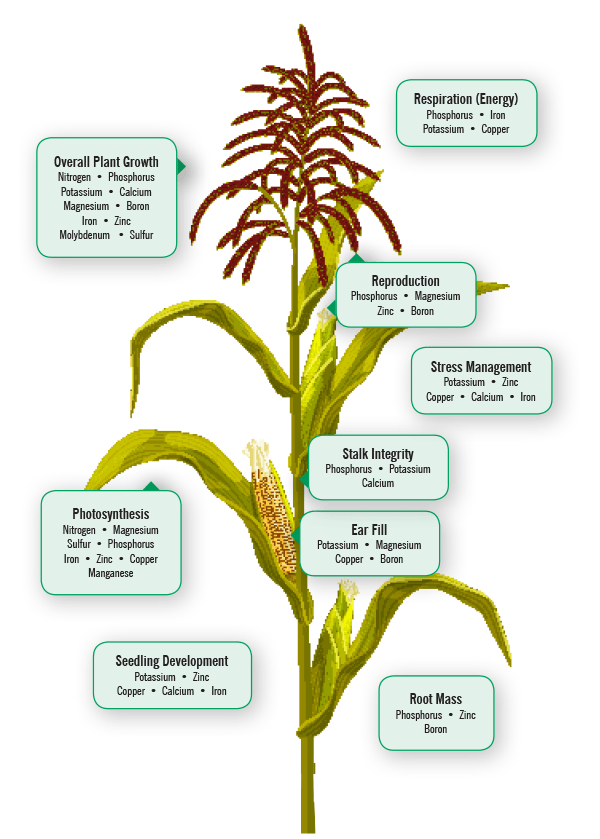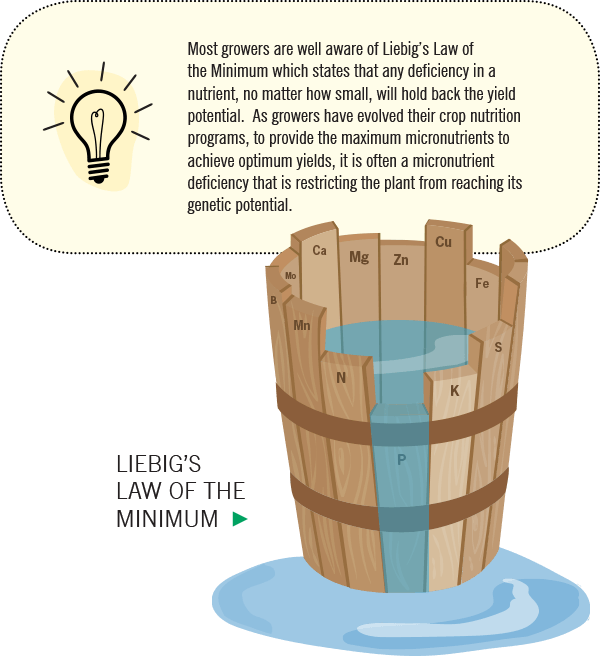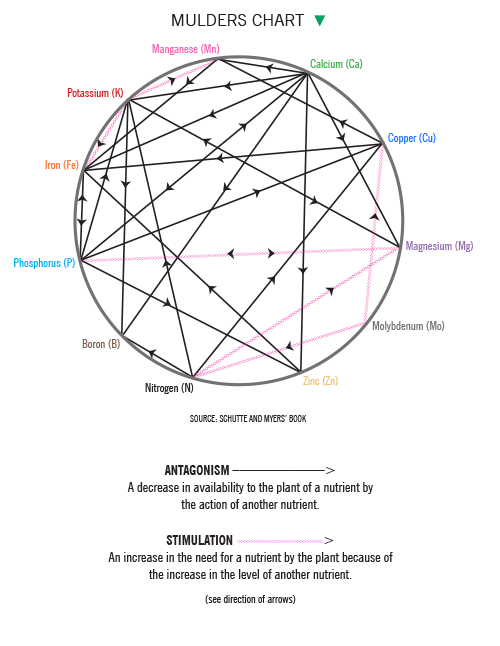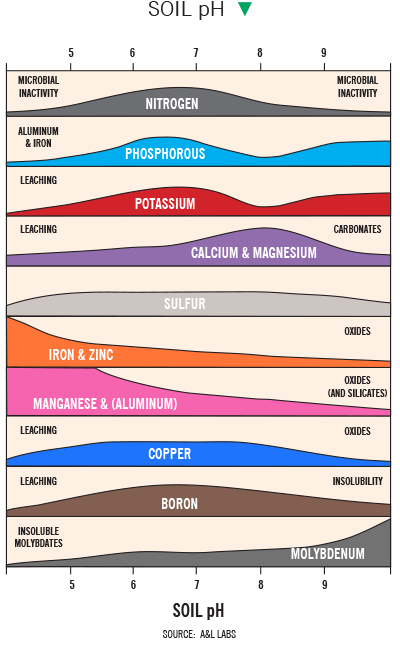Nutrient Functions & Interactions
Growers must take into account the interactions of nutrients with each other.
Any over supply of one nutrient can cause another nutrient to become the limiting factor.
Balance of nutrient supply is critical.
All plants, whether it be corn, soybeans, wheat, cotton, cranberries, or canola, require nutrients for proper growth and development. About 90-95% of plant dry matter is composed of carbon, hydrogen, and/or oxygen. The remaining 5-10% is obtained from the soil and/or from fertilizer supplied by the grower. We may understand the importance of primary nutrients (nitrogen, phosphorus, potassium) in achieving production goals that are set each year, however, we often forget the importance of secondary nutrients (calcium, magnesium, sulfur) and micronutrients (boron, copper, iron, manganese, molybdenum, zinc) in the overall process of plant growth and development. Although these nutrients are required in much smaller quantities, they are essential for completion of many physiological cycles and processes within the plant. In many cases, plants cannot fully utilize primary nutrients without adequate supplies of secondary and/or micronutrients supplied at the appropriate time. Below is a listing of functions these nutrients provide within the plant.
Nutrient Functions in the Plant
-
Nitrogen (N)List Item 1
- Converts to amino acids, the building blocks for proteins
- Produces necessary enzymes and structural parts of the plant
- Becomes part of the stored proteins in the grain
- Works with chlorophyll to utilize the sunlight as an energy source
- Needed for rapid growth and full development
-
Phosphorus (P)List Item 2
- Needs to be available during early development for max yield potential
- Needed for strong root development
- Encourages early plant growth for longer growing seasons
- Provides required energy for nutrient transport
- Plays a vital role in photosynthesis
- Essential in providing the genetics for all plant growth and development
-
Potassium (K)List Item 3
- Plays a vital role in photosynthesis
- Regulates water use with stomatal activity
- Keeps transportation systems functioning normally
- Required for protein synthesis and starch synthesis
- Enhances quality by improving disease resistance and stress management
-
Sulfur (S)List Item 4
- Mirrors phosphorus requirements in plants
- Primary constituent of many amino acids
- Aids in activation of enzymes and vitamins
- Needed for chlorophyll formation
- Used in nitrogen stabilization
- Nodulation in legume crops
-
Calcium (Ca)
- Necessary for the proper functioning of growing points
- Forms compounds which strengthen cell walls
- Aids in cell division and elongation
- Neutralizes organic acids
- Regulates protein synthesis and slows the aging process
-
Magnesium (Mg)
- Only mineral component of the chlorophyll molecule
- Aids in formation of sugars and starches
- Plays important part in phosphorus translocation
- Aids in proper functioning of plant enzymes
-
Boron (B)
- Required for cell division
- Plays important part in calcium translocation
- Protein synthesis and hormone formation
- Carbohydrate metabolism
- Pollen viability
- Flower formation and fruit set
-
Copper (Cu)
- Required for chlorophyll production
- Aids in photosynthesis and enzyme formation
- Involved in oxidation-reduction reactions
- Regulates water movement in cells
- Needed for seed production
-
Iron (Fe)
- Necessary for the formation of chlorophyll
- Involved in oxidation process that releases energy from starches
- Protein formation
- Aids conversion of nitrate to ammonia in cells
- Plant respiration
-
Manganese (Mn)
- Essential for chlorophyll production and photosynthesis
- Aids in carbohydrate metabolism
- Oxidation-reduction reactions
- Enzyme activation
- Combines with iron, copper, and zinc in hormone balance
-
Molybdenum (Mo)
- Co-factor in nitrate reductase enzyme
- Essential for rhizobia in nitrogen fixation process
- Aids in nitrate utilization
- Involved in phosphate and iron metabolism
-
Zinc (Zn)
- Necessary in chlorophyll formation
- Involved in enzyme activation and production
- Required in hormone (auxin) and nucleic acid synthesis
- Aids in uptake and water use efficiency






